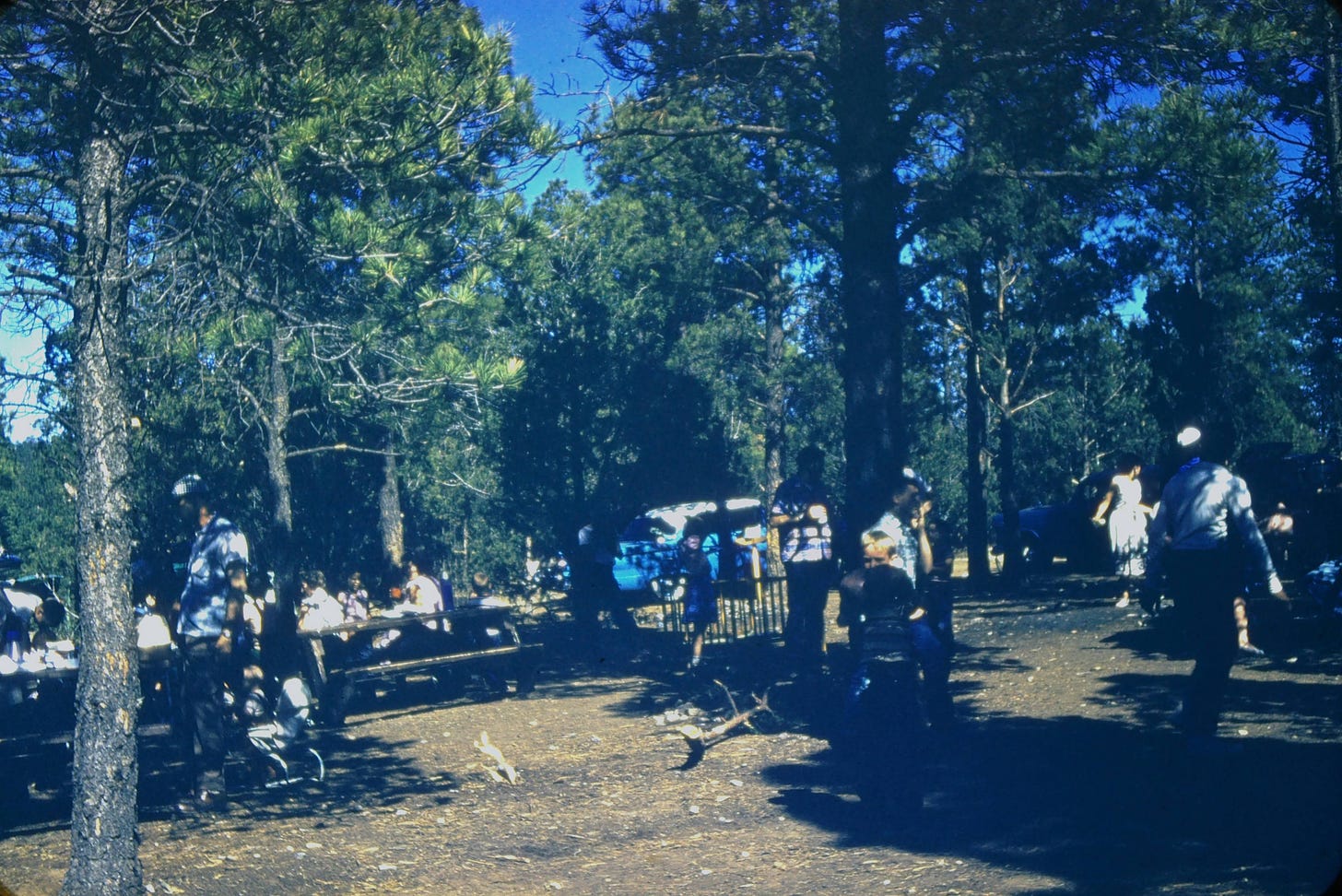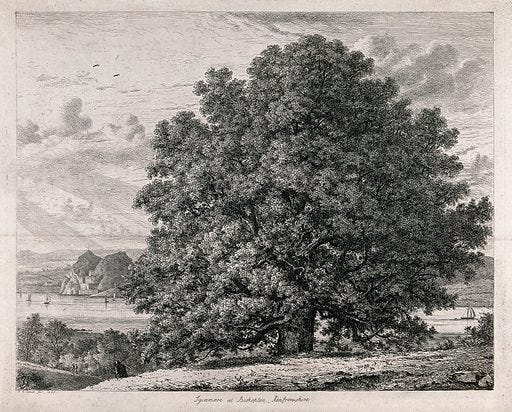There used to be four billion American Chestnut Trees from Georgia to Maine, so tall and majestic they were called the Redwoods of the East. They grew to enormous heights and produced tough but pliable rot-resistant wood. America was built out of chestnut.
These “Eastern Redwoods” stood watch on the Eastern Seaboard, the gates through which every new American made their journey to the country’s interior. The trees were such important landmarks that town squares were often planned around the site of the biggest Chestnut Tree within city limits. There is a Chestnut Street in almost every city in America.
You may know the opening to one of America’s most classic Christmas songs, “chestnuts roasting on an open fire.” Once a year these trees would drop enormous chestnuts on the ground that people would gather and roast then eat. It was as much of a tradition as turkey on Thanksgiving. They were beloved.
At the turn of the twentieth century, an imported blight killed 99.99% of the Eastern Redwoods.
So much of American life was centered around the Eastern Redwood: where people lived, what things were named, how things were built, even aesthetic tastes. But most Americans today have never seen one or even heard of them.
When the noise of our life is revealed to be an echo of a sound long since made, that sound is an Eastern Redwood. Our lives are full of answers to questions that were asked before we could speak. Those questions are Eastern Redwoods. Sometimes we discover that an important arc in the story of our life is not really about us at all. Rather, it is the epilogue to someone else’s story. That person is an Eastern Redwood.
My middle name came from my oldest uncle, Dain. He died when I was two years old. It was hard on my large, close family.
My family has always loved trivia, junk shops, and visiting Gatlinburg, Tennessee together. They are also all voracious readers. My dad’s love of reading led to him opening a secondhand bookstore, a bookstore I now work in and hope to own someday. Growing up there led to me loving books and being a writer. In my life, Uncle Dain is an Eastern Redwood.
I was almost thirty years old before I realized that these are all the things Dain loved: trivia, junk shops, Gatlinburg, and old books. So much of who I am is the values, humor, and tastes of a man I have no recollection of meeting.
To discover the Eastern Redwoods of your life can feel like a loss of agency. And as often as an Eastern Redwood is the genesis of something quaint, quirky, or harmless, it can be the source of something dark and pernicious. However, to honor the ghost giants of your life, to venture into the old growth forest of how we came to be who we are, is the only way to be free to decide who we can be.
Note from Charlie: I’m re-publishing this two-year-old essay today because the end of the year puts me in a reflective mood. I was talking today to one of my closest writing friends. I’ve known for a year and a half and was surprised when he said he had never seen this essay. It was the first thing I wrote that I was really proud of, the first essay I felt captured my voice, and the essay I chose to launch my Substack with. I felt like it was such a big part of who I was, yet it was invisible. This is, in a way, its own sort of Eastern Redwood.





I enjoyed this piece so much, especially being an epilogue to someone else's story - wow!
Great to have you on Substack, Charlie, this is the place to be!